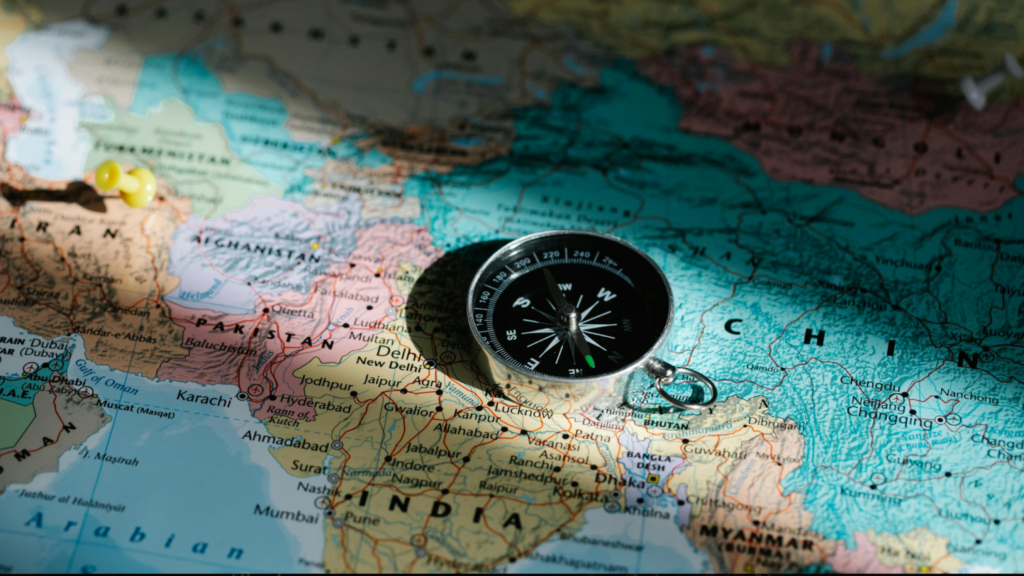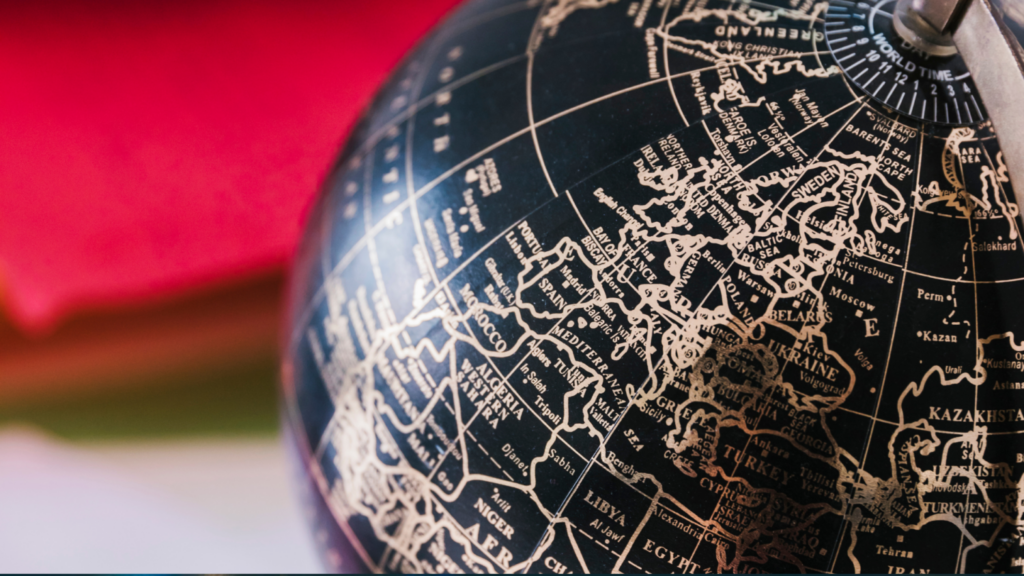Türkiye’s Balancing Act: How Erdoğan Navigates Between NATO, Russia and the Gulf
Since Russia invaded Ukraine in 2022, Türkiye has appeared as one of the most strategically agile players on the global stage. As a NATO member, a regional power with complex historical ties to Russia, and a state with deepening relations with Gulf countries, Türkiye’s foreign policy under President Erdoğan reflects a deliberate balancing act. This manoeuvring is not merely diplomatic theatre — it serves concrete economic, military, and geopolitical ends as Ankara tries to asserts itself as an independent actor amid global fragmentation.
Türkiye and NATO: Strategic, but Strained
Türkiye has kept US nuclear weapons since the Cold War, emphasising its significance in global security dynamics as one of only five countries to have US weapons. Türkiye joined NATO in 1952 and continues to be one of its most geopolitically vital members due to its control over the Bosporus and its proximity to Russia, the Middle East, and the Caucasus. Its strategic position not only acts as a crucial gateway for military and commercial shipping but also proves Türkiye as a key player in regional stability and international relations. However, relations between Ankara and NATO allies have often been strained. Disputes over NATO support for Kurdish groups in Syria, Türkiye’s 2017 purchase of the Russian S-400 missile system (IISS, 2019), and Erdoğan’s delays in approving Sweden’s NATO accession have raised concerns in Brussels and Washington (Cook, 2018).
Nevertheless, Türkiye has also shown its commitment to the alliance, especially during the Ukraine conflict. Turkish drones, notably the Bayraktar TB2, played a significant role in supporting Ukraine in the early stages of the conflict (AP NEWS, 2022). At the same time, Erdoğan has blocked or delayed sanctions against Russia, emphasising Türkiye’s desire to pursue an independent foreign policy that prioritises its national interests.

Engagement with Russia: Competition and Cooperation
Türkiye’s relationship with Russia is complex, spanning cooperation in energy and trade, rivalry in conflict zones such as Syria and Libya, and mutual strategic pragmatism. Erdoğan and Putin have developed a transactional partnership, allowing Ankara to play the role of mediator during moments of heightened East-West tension. Türkiye hosted key rounds of Ukraine-Russia grain deal negotiations in 2022, (UN, 2022) and mediated the US-Russian prisoner exchange in 2024, asserting itself as a diplomatic player in a multi-polar world.
Despite being a NATO member, Türkiye has resisted Western pressure to isolate Russia economically. Bilateral trade between the two countries rose significantly post-invasion, with Russian tourists and energy payments bolstering Türkiye’s fragile economy. Ankara continues to import Russian natural gas, with new payment mechanisms involving partial settlement in Rubles (TASS, 2022)
Pivot to the Gulf: Investment and Realignment
Facing inflation and a weakening lira, Erdoğan has turned to the Gulf for financial reprieve. Türkiye’s rapprochement with Saudi Arabia and the United Arab Emirates (UAE) marks a significant shift from previous years, where ideological rifts, proxy conflicts,and diplomatic crises—most notably Ankara’s fierce condemnation of the 2018 assassination of journalist Jamal Khashoggi—had strained relations. At the time, Erdoğan publicly accused the Saudi leadership of orchestrating the murder, positioning Türkiye as a defender of press freedom and regional accountability. However, economic requirements have since taken precedence. In 2023, the UAE pledged $50 billion in investment projects in Türkiye, spanning various sectors, including energy and infrastructure (Reuters, 2023). These closer ties serve both sides: Gulf states gain strategic diversification amid uncertainty in U.S. regional policy, while Türkiye receives vital foreign capital and diplomatic support. The Gulf-Turkey alignment is increasingly pragmatic, driven by mutual economic and security concerns rather than the pan-Islamist rhetoric or moral posturing that once shaped Turkish regional ambitions in the past.
Economic Pressures and Strategic Autonomy
Türkiye’s foreign policy flexibility is partly a function of economic necessity. Inflation peaked at over 80% in 2022, prompting the government to seek multiple avenues of support. Russia’s energy exports, Gulf investments, and Western loans all play a role in Türkiye’s economic equation. Erdoğan’s administration is trying to balance these competing sources without alienating any of these major partners.
Türkiye’s defence industry also contributes to this strategy, which has grown from $5.5 billion in 2023 to $7.1 billion in 2024. By increasing domestic production — from drones to warships — Ankara reduces reliance on foreign suppliers while bolstering its status as not just a regional, but a global arms exporter. Despite its largest arms customers all being regional (UAE, Pakistan, and Qatar), Turkish share of global arms exports rose to 1.7% between 2020 and 2024, up from 0.8 between 2015 and 2019. During this time, Turkish arms exports experienced a growth of 103%, making them the 11th largest arms exporter in the world (George, M., Djokic, K., Hussain, Z., Wezeman, P.D. and Wezeman, S.T., 2025).
Geopolitical Implications
Erdoğan’s approach is a new model of middle power strategy in a multipolar world. Unlike Cold War-era alignment, Türkiye’s foreign policy today is highly transactional, interest-based, and situational. This gives Ankara leverage but also exposes it to volatility. Strains with Western allies could intensify if Türkiye drifts too far from NATO consensus, while deepening ties with Russia and the Gulf carry their own long-term dependencies.
Türkiye’s balancing act is also being closely watched by other nations in the Global South, who see in it a model for navigating great power competition without surrendering autonomy.
Erdoğan’s foreign policy is not an ideological departure but a continuation of Türkiye’s deep-rooted pragmatism. The balancing act between NATO, Russia, and the Gulf is designed to protect Türkiye’s sovereignty, maximise economic gain, and elevate its international standing. Whether this strategy can be sustained in a world of increasingly stark alignments remains to be seen, but for now, Türkiye remains a key pivot point in the multi-polar world which exits today.
Bibliography
- Cook (2018) Neither Friend nor Foe: The Future of U.S.-Turkey Relations
- Reuters (2023) UAE to Invest $50 Billion in Turkish Economy. [Online] Available at: https://www.reuters.com/markets/uae-invests-turkey-2023
- https://www.paturkey.com/news/2025/turkish-defense-exports-reach-7-1-billion-in-2024-expanding-global-reach-18457/
- UN (2022) Black Sea Grain Initiative Overview. [Online] Available at: https://www.un.org/en/black-sea-grain-initiative
- Russia, Türkiye agreed on partial payment for gas supplies in Rubles — Russia’s Deputy PM – Business & Economy – TASS
- Türkiye, the S-400 and the F-35
- AP NEWS. (2022). Cheap but lethal Turkish drones bolster Ukraine’s defenses. [online] Available at: https://apnews.com/article/russia-ukraine-middle-east-africa-libya-europe-ecb9e820ea4bddb4464d7e8cb40e82fc.
- George, M., Djokic, K., Hussain, Z., Wezeman, P.D. and Wezeman, S.T. (2025). Trends in International Arms Transfers, 2024. [online] doi:https://doi.org/10.55163/xxsz9056.
- TASS (2022). Russia, Türkiye agreed on partial payment for gas supplies in rubles — Russia’s Deputy PM. [online] TASS. Available at: https://tass.com/economy/1490185
- investmentmap.org. (n.d.). InvestmentMap. [online] Available at: https://www.investmentmap.org/investment/time-series-by-country.



